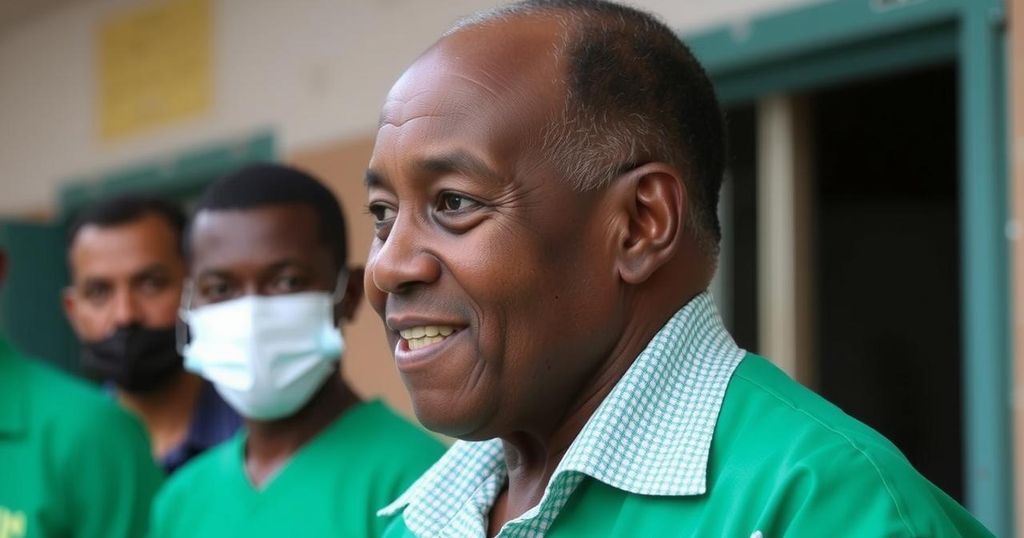Comoros Elections: A Vote Marked by Opposition Boycotts and Controversies
Comoros held elections amid opposition boycotts citing lack of transparency, with President Assoumani’s son running for office. Polling was marred by delays and concerns over privacy. Critics claim the electoral process reflects rising authoritarianism as the CRC party seeks to maintain dominance in parliament amid allegations of fraud.
The Comoros, an island nation located in the Indian Ocean, conducted its elections on Sunday amid significant opposition boycotts. Critics, including various opposition groups, have labeled the electoral process as lacking transparency, leading to their decision to forgo participation. President Azali Assoumani’s son, Nour El Fath Azali, is contesting for a parliamentary seat just outside the capital, Moroni. Reports indicated that several polling stations experienced delays due to insufficient materials, and some makeshift voting setups raised concerns about voter privacy.
Nour El Fath Azali, age 39, has previously served as an advisor to President Azali, and since July 2024, holds significant power over government decrees. His role has been increasingly criticized, perceived as an attempt to consolidate authority. In a contentious political atmosphere, opposition candidates participate cautiously, hoping to avoid the backlash experienced during the 2020 legislative boycott, which permitted the ruling Convention for the Renewal of the Comoros (CRC) party to dominate.
Voter turnout was also marred by a lack of proper election management, as indicated by one voter’s experience, stating, “I dipped my finger in the inkwell but the ink’s already gone.” Despite the electoral challenges, approximately 340,000 registered voters are expected to participate in this two-round electoral process, with a second round scheduled for February 16, 2024.
The political landscape in Comoros is characterized by tensions between the ruling party and opposition groups. President Azali Assoumani has faced allegations of authoritarianism following his re-election in January 2024, which was marred by claims of electoral fraud and post-election violence. The previous legislative elections in 2020 were boycotted by opposition parties, enhancing the CRC’s parliamentary control. This ongoing struggle highlights the challenges of governance and civil engagement in a small island nation with a turbulent political history.
The recent elections in the Comoros are reflective of a wider struggle for democratic governance and transparency. Opposition groups have expressed serious concerns over the integrity of the electoral process and the increasing consolidation of power by the ruling party, specifically through the figure of Nour El Fath Azali. As the nation moves forward with its political activities, the implications of these elections may significantly influence the future of the Comorian government and its relationship with the populace.
Original Source: www.barrons.com




Post Comment